
In or just before 1591, in the city of Salisbury, a young, unmarried woman named Alice Shepheard was horrified to discover she was pregnant. If exposed she would be branded as a “bastard bearer”, a “harlot” and a “whore”, who could expect no more than ruination and exile from her community. Like so many women in her situation, she hid her pregnancy and gave birth in secret, with only her grandmother and a sympathetic midwife in attendance. Alice was delivered of a healthy baby boy, and to save herself she killed him and then buried his body in a shallow grave in a nearby churchyard.
For a time the infant remained hidden, until a passing dog caught the scent of decay and “with his feete scraped it up out of the ground” and “laid it open to the eye of each passenger”. The unearthed body was soon noticed and the hue and cry of murder went out. The midwife, “touched in conscience”, gave both Alice and her grandmother over to the authorities. All three women were tried at the next assizes and sentenced to death.
Reports of the case made much of the “wonderous discovery” of the murdered child. The dog, it was said, was not simply an animal driven by instinct to dig up a corpse, but a divine messenger who had been sent by God to uncover the heinous sin. “See the will and wonderfull woork of almighty God to reveale this most wicked act,” wrote one pamphleteer, who warned his readers that, through such miraculous signs, God would not suffer murder to go unpunished.
Supernatural evidence
Diese Geschichte stammt aus der May 2023-Ausgabe von BBC History UK.
Starten Sie Ihre 7-tägige kostenlose Testversion von Magzter GOLD, um auf Tausende kuratierte Premium-Storys sowie über 8.000 Zeitschriften und Zeitungen zuzugreifen.
Bereits Abonnent ? Anmelden
Diese Geschichte stammt aus der May 2023-Ausgabe von BBC History UK.
Starten Sie Ihre 7-tägige kostenlose Testversion von Magzter GOLD, um auf Tausende kuratierte Premium-Storys sowie über 8.000 Zeitschriften und Zeitungen zuzugreifen.
Bereits Abonnent? Anmelden

Viking mussels
ELEANOR BARNETT digs into archaeological research to recreate a Viking-cum-AngloSaxon seafood dish from medieval York
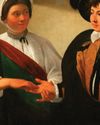
Fingers, frog's and fairies
Fortune telling was all the rage in the 16th and 17th centuries, and practitioners would stop at nothing to tap in to the supernatural. Martha McGill tells a story of Highland seers, tarot cards and encounters with the spirit world
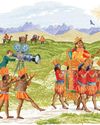
Nothing matches being with Alexander the Great on foot in the Hindu Kush
AT OUR LITTLE FILM COMPANY, MAYA VISION, we recently took the decision to digitise all of the rushes of our key films so that we could dispose of hundreds of boxes of tapes that had been kept in storage, throwing out stuff we thought we would never need again.

Library of the dead
Highgate Cemetery, created as a fashionable resting place for wealthy Victorian dead, is a veritable who's who of London's great and good. PETER ROSS roams the avenues of this most atmospheric necropolis
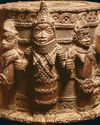
Slavery, exploitation and racism. These tragedies have long dominated histories of Africa. But there's another way to tell this story. And it's one that puts Africans right at the centre of their continent's extraordinarily rich and vibrant past
An 1414, in the Chinese city of Nanjing, a giraffe caused a stir. Amid a crowd of shocked, noble spectators, an official, leading the creature via a rope tied round its face, presented it to China's Yongle emperor. His officials said it was a qilin - an auspicious unicorn - which his sage governance had made appear.

England's forgotten hero
When the Hundred Years' War was reaching a climax, one man was fighting tenaciously to secure the English claim to the French crown. So why, asks Joanna Arman, is Henry V's formidable brother, John, Duke of Bedford, not better known?
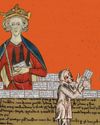
HENRY III AND THE MAGNA CARTA THAT MATTERED
King John's sealing of a charter at Runnymede in 1215 is one of the most feted moments of the Middle Ages. Yet, writes David Carpenter, it was the charter issued by his son 10 years later that became fundamental to England's history
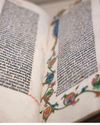
Gutenberg publishes a pioneering new book
‘The printing press triggers an information revolution
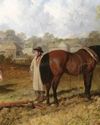
How empire ruptured rural Britain
We know that enslaved Africans and their descendants suffered in the distant colonies of empire. But, as Corinne Fowler explains, the colonial system also had dire impacts on people in the countryside of the 'motherland'
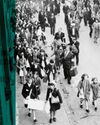
"I FELT VERY ALONE IN A WORLD GONE HORRIBLY MAD"
It was a moment of possibilities, dislocation and dread. Dan Todman tells the story of the 1.5 million urban Britons evacuated to the countryside at the start of the Second World War